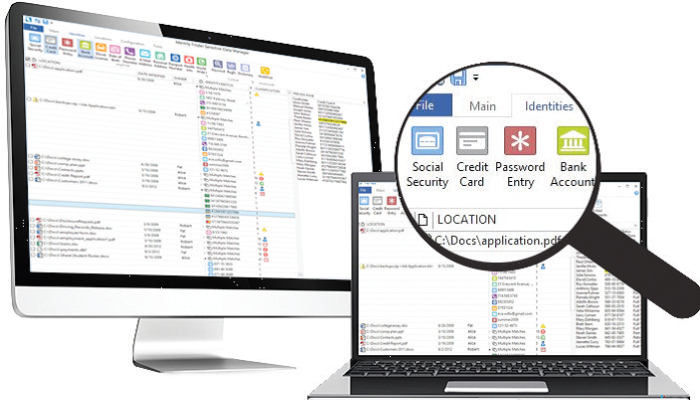
or

With the government demonstrating greater commitment to resolving corporate disputes (through arbitration, fast track courts, or mechanisms such as the Indian bankruptcy code), the parties involved need to be better prepared to gather/produce documents with evidentiary value and submit their responses in legal and/or insolvency matters. Particularly in disputes related to fraudulent practices, data must be managed to allow a company to present relevant information to authorities and assess their factual legal position.
However, according to our experience, managing organisational data can be quite challenging in the global economy where companies can be subject to different legislation and regulatory obligations. In such a scenario, a well-designed data discovery readiness assessment process can be useful for organisations.
This process can help organisations understand the following aspects: 1) where their data lies, 2) how much of it is critical and relevant to the requirement at hand, 3) who are data owners, 4) what are geographical regulatory obligations, and 5) how should data be presented. Over time, this process can help organisations maintain compliance as it allows them to respond to regulatory requests or prepares them to deal with matters related to investigations or litigations.
Collating and sharing data (to be used as evidence) can be a challenging task that often involves deriving insights from both structured data (such as data from financial systems and enterprise resource planning software) and unstructured data (such as emails, data on fileservers, and backup tapes) aggregated from multiple sources in different formats. Some important considerations could be different data retention obligations and associated regulations according to jurisdiction and data type, and cross-border data transfer restrictions. Knowing how to manage personal data as part of the preservation process, maintaining data confidentiality during discovery, and storing data safely are also critical considerations, especially in the light of enhanced attention to personal data protection legislation. Organisations must also understand the appropriate level of technology they need to implement while keeping costs (as well as time consumed) at a minimum.
According to our experience, the following four vital aspects can be considered:
Preservation requirements – Organisations need to consider the regulatory requirements of data sets’ retention and preservation schedules, in case of litigation, and for geographical and jurisdictional privacy compliance.
Such preservation policies should also be considered when people playing specific roles leave organisations
Organisations should set up a data discovery process that considers the entire life cycle of data. The process is explained below.
To improve data discovery readiness, we suggest an approach that includes collaboration among various teams involved in the process – legal, information security, privacy officers, finance, technology, and human resource. This will help discover critical data sources, owners, and retention requirements; review systems/tools being used for asset management, and legal hold implementation and tracking; deliberate on the data discovery and management process and policies; identify gaps and implement measures to improve the legal hold, data retention, and data preservation processes; and identify key stakeholders responsible for reserving data.
Organisations can proactively assess their data discovery readiness, which involves an end-to-end process. The process is used to map potentially relevant and often unstructured data sources, and identify critical data islands and owners to enable collecting, preserving, analysing, reviewing, and producing potential digital evidence. This evidence can then be effectively used in any legal or disciplinary matter(s), in an employment tribunal or domestic or international court of law.
Some factors that can be considered while assessing data discovery readiness include jurisdictional/regulatory differences across geographies to preserve data (including personal and financial data); ensuring the traceability of data; adequacy of employee training concerning data protection and potential breaches; and data rectification, legal hold, and data retention policies.
Jayant is a Partner and leads the Forensic Technology area within Deloitte Forensic India. He has over 19 years of experience and has assisted clients with matters related to cybercrime, bribery and corruption investigations, litigation support through e-discovery, dispute resolution and responding to regulatory enquiries.
Sachin is a Director in the Deloitte Forensic practice in India and has over 14 years of work experience in the areas of Digital Forensic, Electronic Discovery and Incident Response. He has worked closely with law firms, forensic professionals and regulators while assisting them in over 200 fraud investigations across industries.
Rahul Vallicha is a Manager in Deloitte’s Forensic practice in India. With over 7 years of experience, his area of expertise lies in Discovery Consulting work and Litigation Preparedness for clients. He is the Relativity Administrator for Deloitte India and is a Certified eDiscovery Specialist. He has hands on experience working on forensic tools such as Encase, FTK, Nuix, Intella, Xways Forensic, Passware Kit and Internet Evidence Finder amongst others.

Lex Witness Bureau

Lex Witness Bureau

For over 10 years, since its inception in 2009 as a monthly, Lex Witness has become India’s most credible platform for the legal luminaries to opine, comment and share their views. more...
Connect Us:


The Grand Masters - A Corporate Counsel Legal Best Practices Summit Series
www.grandmasters.in | 8 Years & Counting
The Real Estate & Construction Legal Summit
www.rcls.in | 8 Years & Counting
The Information Technology Legal Summit
www.itlegalsummit.com | 8 Years & Counting
The Banking & Finance Legal Summit
www.bfls.in | 8 Years & Counting
The Media, Advertising and Entertainment Legal Summit
www.maels.in | 8 Years & Counting
The Pharma Legal & Compliance Summit
www.plcs.co.in | 8 Years & Counting
We at Lex Witness strategically assist firms in reaching out to the relevant audience sets through various knowledge sharing initiatives. Here are some more info decks for you to know us better.
Copyright © 2020 Lex Witness - India's 1st Magazine on Legal & Corporate Affairs Rights of Admission Reserved